Published Mar 19, 2022
Connor Trinneer Finds the Humanity in Horror
The Trip Tucker actor reflects on Enterprise, conventions, and his new series 'The Purge.'
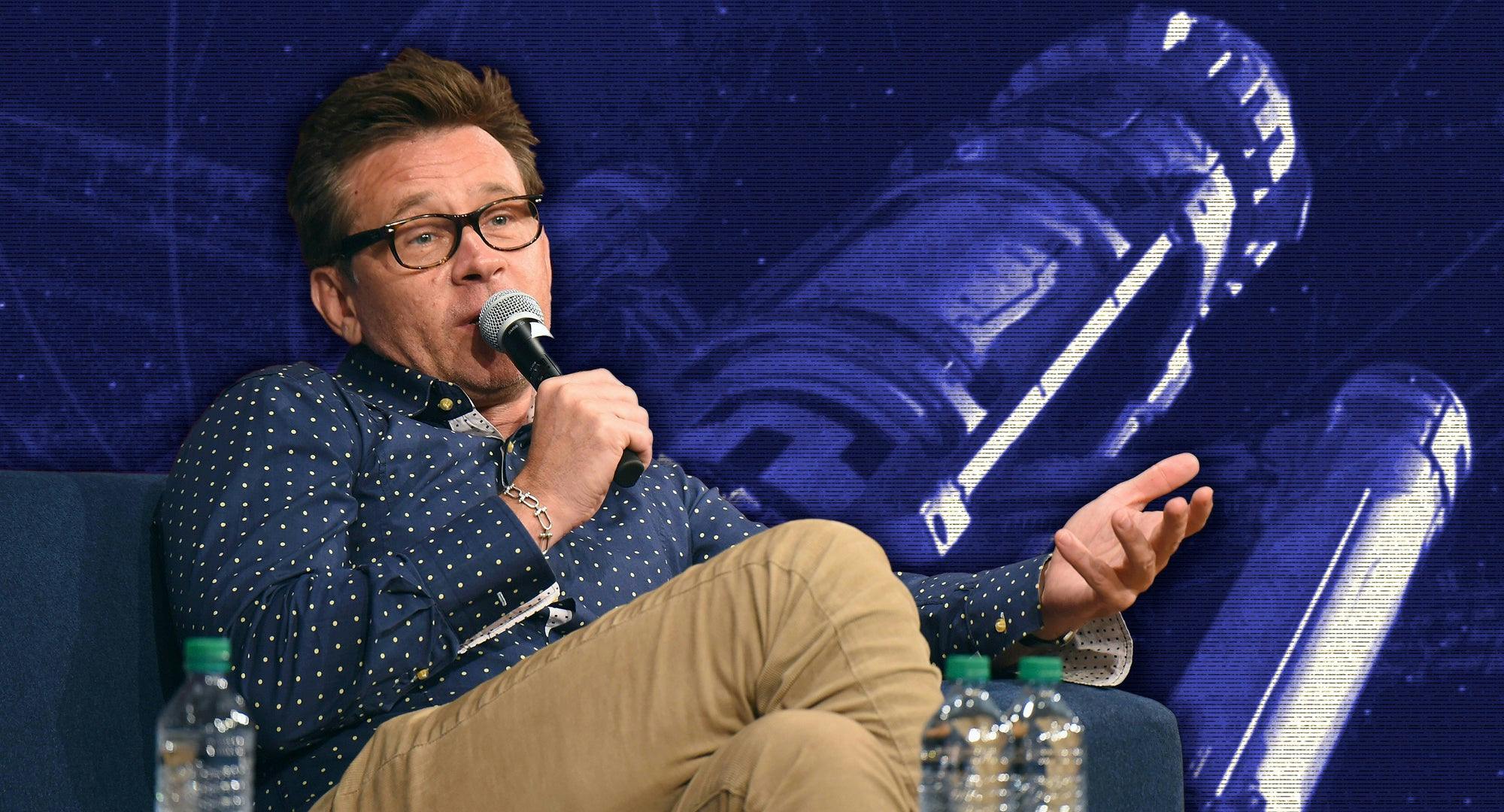
StarTrek.com / Getty
This article was originally published November 12, 2019.
Fans of Enterprise will remember Connor Trinneer as the engineer with a winning smile, Trip Tucker. Though Trip was clearly meant to be the show’s eye candy, Trineer imbued the character with depth, and the show’s writing staff provided great storylines, like his accidental alien pregnancy in season one. As a scientist myself I have always been impressed by how well he brought Trip to life, both as an engineer and as a person trying to connect with other humanoids.
This fall, Trinneer has a role in the second season of the USA series The Purge, which is adapted from the film franchise of the same name. While Star Trek shows viewers an optimistic vision of a utopian future, The Purge does something very different, portraying a society that purportedly controls violence by unleashing it for one night a year. Arguably, it’s about human disconnection, rather than Trek’s theories of intergalactic community.
I caught up with the Enterprise actor by phone to talk about this new, radically different role, his experience in the Star Trek fan universe, and what would happen if Trip, like Connor himself, had a great grandmother who was Native American.
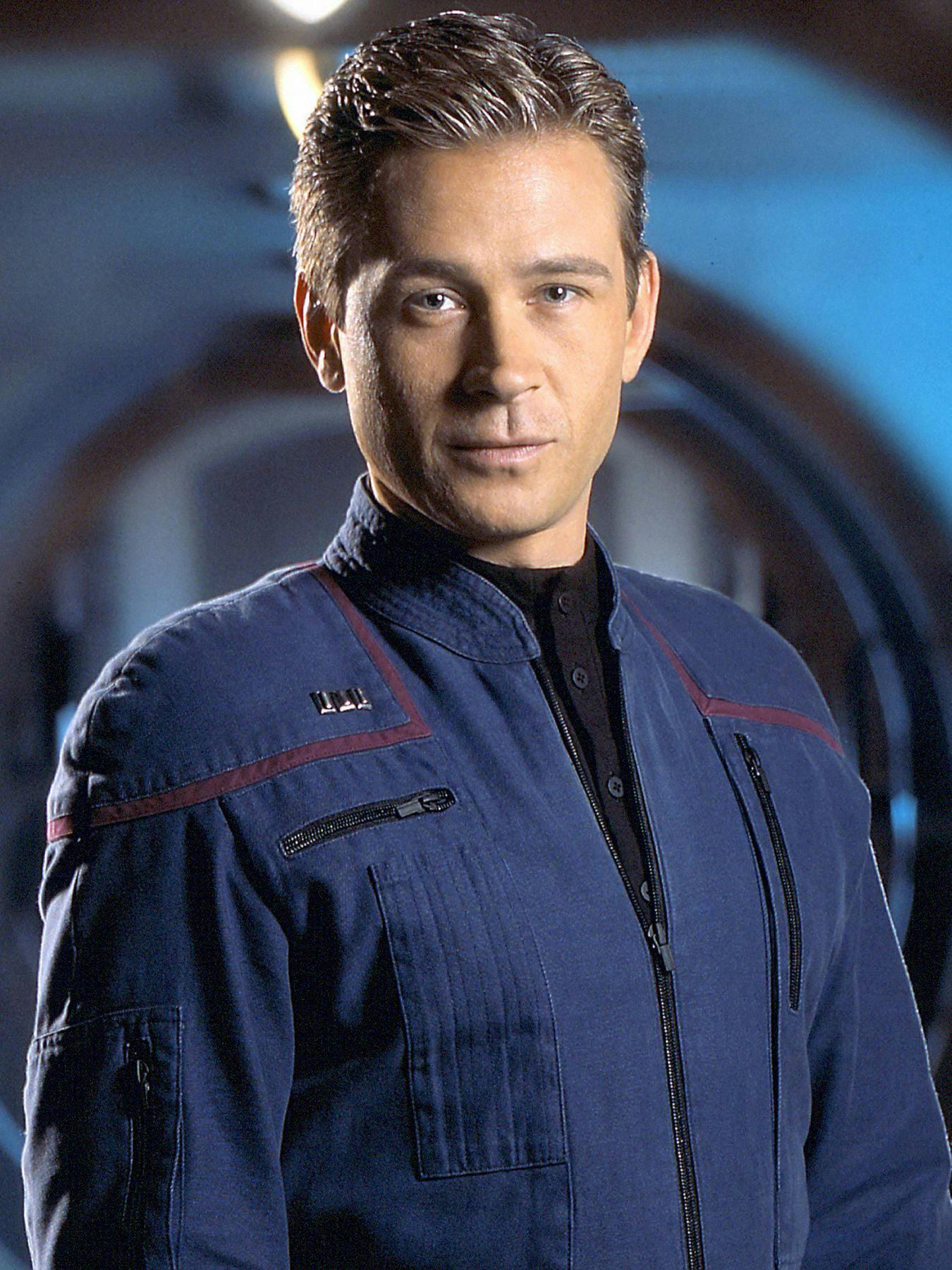
StarTrek.com
StarTrek.com: The premise of The Purge is that for 12 hours every year, almost all crimes, including murder, are legal. The violence is intense. How do you prepare to work on heavy material like that?
Connor Trinneer: Well, you really have to break it down and put it in its base element of telling the truth and you know, to a certain extent suspending your level of disbelief. At the end of the day, I've got to find the common denominator that is workable for me through just trying to find the truth of a moment; that's really all I have control of. You can literally imagine anything. The worst possible scenario, the best possible scenario. And the luxury that we get as actors is that we get to play in that little gap and try to make a story of it. So, I don't find it difficult really to ever come down from any of those things.
Now that you’ve filmed a season of the show, how are you feeling about it?
CT: I was really pleased with how The Purge turned out. Your job is to use your imagination and figure out how you would live, survive, thrive in that universe. Having seen the first episode, having shot them, I was really impressed with the sort of the human element that is put into this season.
Do you see the Star Trek and The Purge franchises as offering competing visions or complementary visions?
CT: I think the best storytelling involves humanity. One is challenged by it, one is struggling with it, and one either succeeds or fails in it. Enterprise is all about going boldly and showing our humanity and our humanness, and really using that as a focus for whatever its challenges may be. The Purge puts you in a position where you really have to answer those questions. The Purge deals with overcoming the negative aspects of its effect on people, and also what a human being can do to survive and thrive and make honorable decisions. That’s was this season was to me.
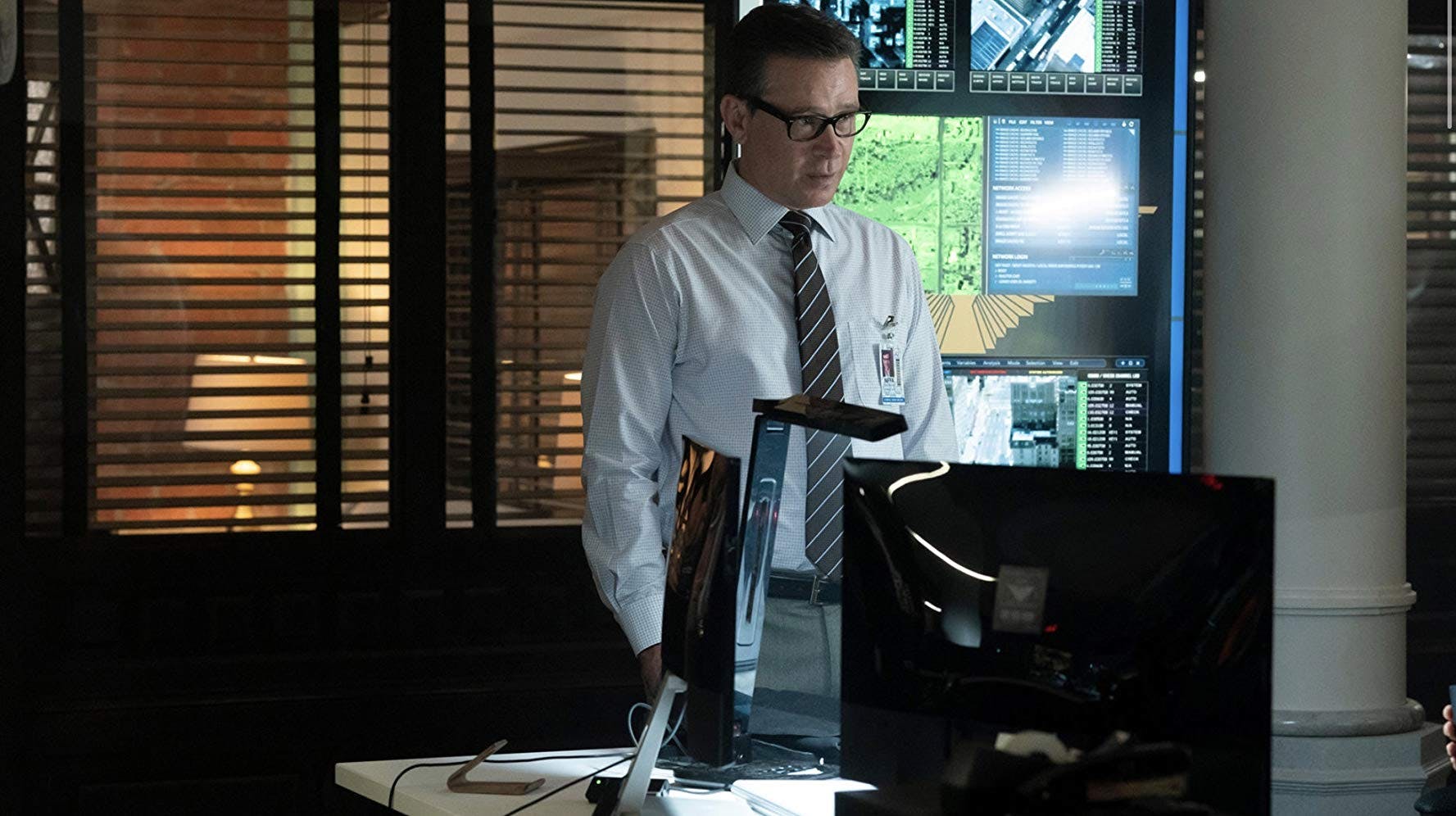
StarTrek.com
In your role you’re playing a middle manager for the government, overseeing an office that monitors the purge. It seems like his take is, "I'm just following orders and this is my white-collar job that is also a normalized as a normal civil service job in our society." For him, is this just his job?
CT: He also believes in it. That’s a good word, “normalized,” and we live in a time when that word specifically has a lot of depth to it that it didn't before. I think that this show exists because of the time that we live in. I think that the best of storytelling and the best of TV holds a mirror up [to the real world].
For instance, Enterprise was completely influenced and changed by [September 11th, 2001.] People should not watch that show without the knowledge that 9/11 happened; [it] changed the narrative of what we were going to be talking about. In The Purge, you have a guy who believes this is a good thing. He believes that this is necessary and that they're doing the right thing. He's a good person. He's got a family. You see people normalizing their realities into something that we think of as the worst of the worst.
I'm surprised The Purge hasn't come out more as a kind of reference point for the question of whether this is the direction that American culture is going in.
CT: Well, I think that season two will be a good litmus test for that. Because, again, it doesn't address it as a one-night event. It addresses it as a [part of] life. The Purge is one thing, shocking and scary. But to see how it's normalized in everyday life — I'm very curious to see how will land with viewers.
You spend some amount of time every year traveling to conventions like the Star Trek Las Vegas Convention, and the Star Trek Cruise and you also go to a few in Europe. If there was a Purge Con, would you go?
CT: Hell yeah!
These events seem like a lot of work. People tell you all kinds of personal stuff. How do you deal with that?
CT: I enjoy them. I just got back from Brazil. I'm going to Birmingham, England in a few days. I've traveled the world. I've met some extraordinary people. I don't feel like an animal in the zoo. I'm there because there is this group of people who are gathering for a week of connection with one another. Sometimes it’s the one vacation they take each year. I'm part of the entertainment, and I feel positive about that. I take a lot of pride in that. I'm very thankful that I get asked, and that I, hopefully, am a part of a good experience with people. There is, absolutely, nothing negative about the idea of like-minded people coming in to share their thoughts, and they warmly embrace each other whenever they can especially in the theme that is Star Trek.
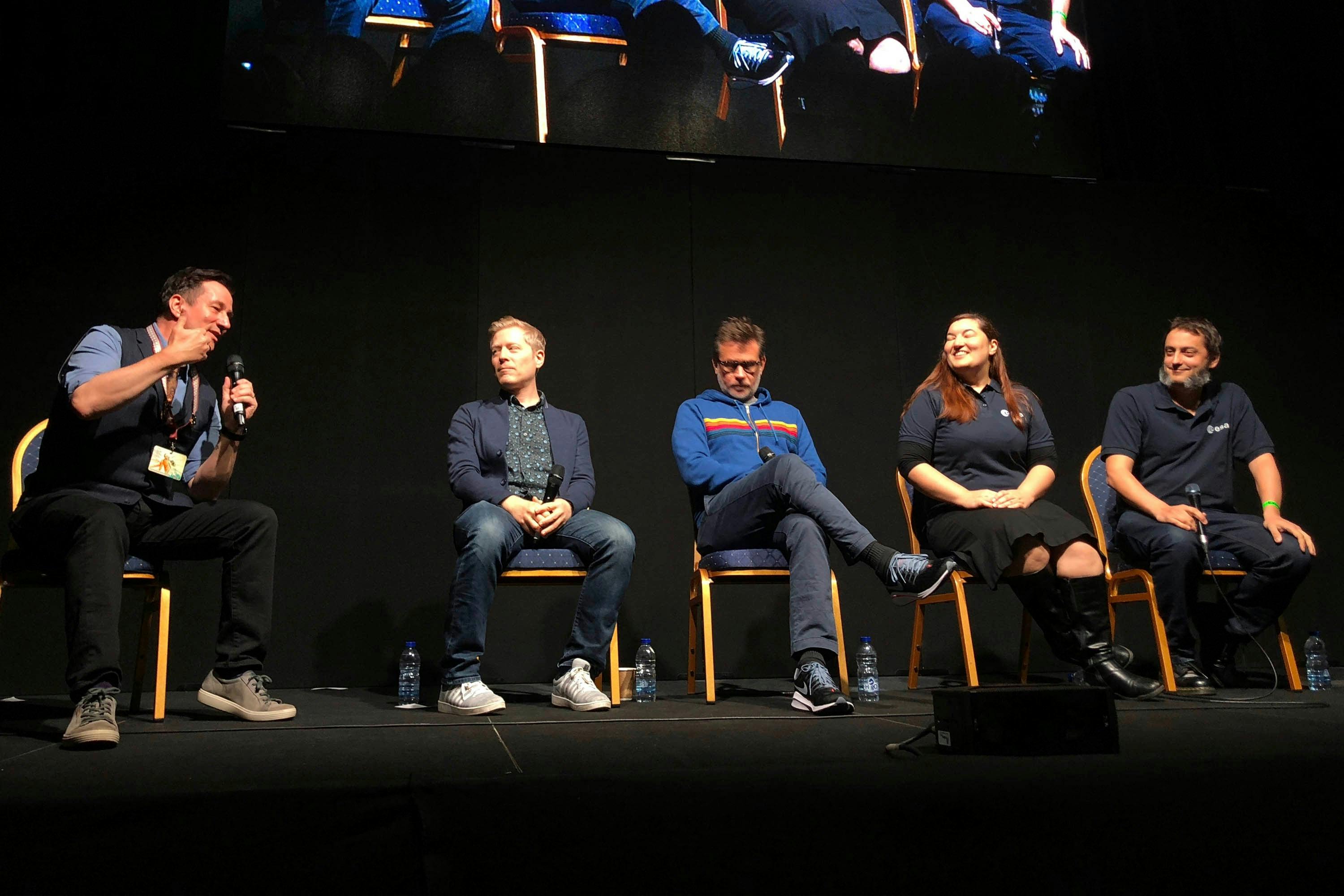
Ila Desai
At my first Star Trek Convention, I thought, "Wow you can go to a thing where people just gather because they believe in Infinite Diversity in Infinite Combinations?”
CT: Right. And in my normal life, people don't walk up to me in a sidewalk and say, "You know what? You've inspired me to be an engineer. You helped me get through this, that, or the other thing in my life that was difficult." I hear that all the time [at conventions]. And I take a lot of pride in that, and the fact that nobody has ever walked up to me and said, "You ruined my life!"
Going to these conventions means that you spend a lot of time with the actors who were not on the same show as you. Have you developed friendships because of the conventions?
CT: A hundred percent. And it's also similar, I would think for the fans. And it is, I think, for us as well that this is an opportunity —four, five, six times a year — to reconnect with these people. It's like seeing an old friend that you've always liked that you just sort of fall into that rhythm again. And that's also one of the great joys of doing this.
We had a really big loss in September with Aron Eisenberg very suddenly passing away.
CT: Aron was such a good soul. Whenever I saw him, we just laughed. And he was so intelligent and so quick. I heard a story that I think it really sort of gets to the heart of who he was. I heard that at the Las Vegas convention, on the last day when everybody was leaving, he would get up in the morning and go down to the lobby by the elevators and wait for all the actors to come down to leave and would spend all morning there to say goodbye. He lit up the room.
Don't forget to say "hi" to someone, don't forget to give them a hug if you feel like it, don't forget to tell somebody that you care for them.
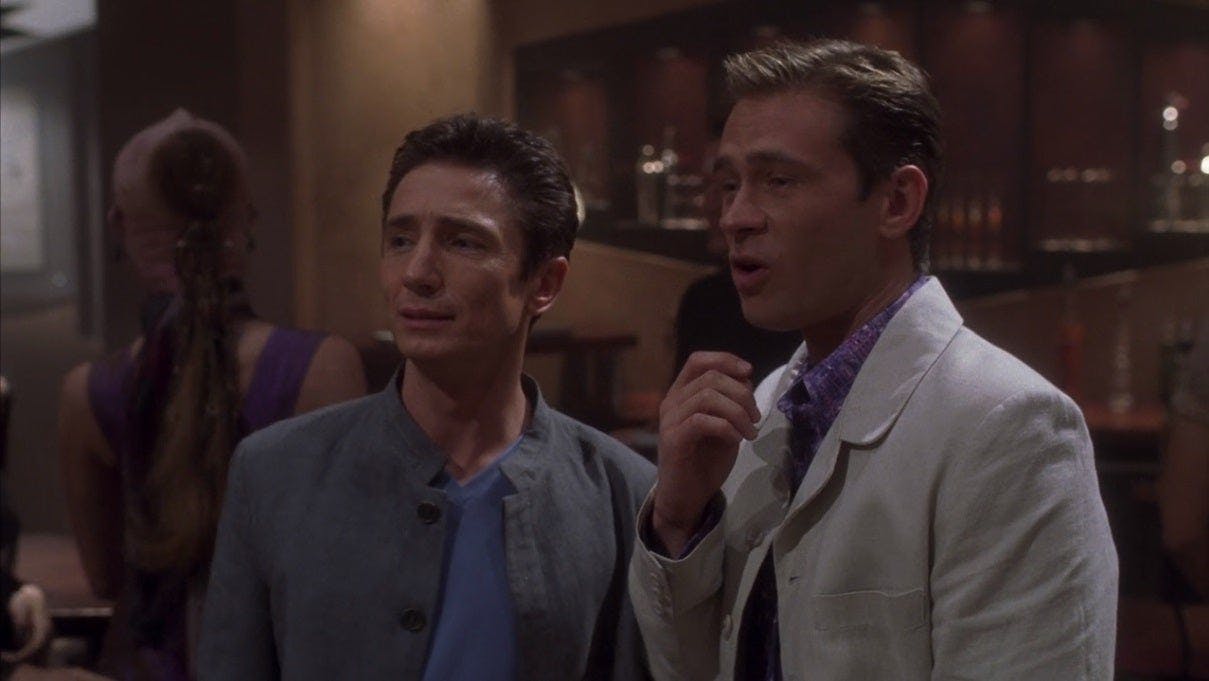
StarTrek.com
On a more personal note, I know your father’s grandmother was Choctaw. But you grew up pretty far from the Choctaw Nation home in Oklahoma, right?
CT: I'm very proud of my great grandmother’s Choctaw heritage. I've never lived in an environment where there are a lot of Native American people, and this industry that I'm in has got so little to do with bringing attention to that experience. There there are so many people like me in America who have Native heritage, but for one historical reason or another have been cut off from it. I’d like to see that story explored in TV and film – with care.
If there was an opportunity to come back to the Trip Tucker storyline, is being descended from a Native American something that you would be interested in seeing written into his story? CT: One hundred percent. I think it's an underrepresented narrative that, again, a lot of us share because we have this heritage. Some are enrolled [in their nations or tribes] and some aren’t. I think it would be fascinating to address that through a character who got schooled about his family’s past decisions and had to come to a new understanding about his ancestors.
This interview has been edited and condensed.
Dr. Chanda Prescod-Weinstein is an Assistant Professor of Physics and Astronomy and Core Faculty in Women’s Studies at the University of New Hampshire. Her research focuses on cosmology and particle physics. Find her on twitter @IBJIYONGI.

